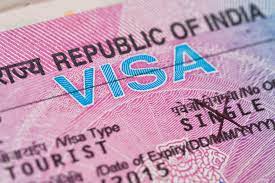Import Export Dispute in India: The Legal Mechanism
India's import and export framework is governed by the Foreign Trade (Development & Regulation) Act of 1992 and the Export Import (EXIM) Policy. While the import and export of most goods are permitted freely, certain items are regulated under the EXIM policy or other applicable laws. To facilitate imports and exports, businesses must register with the relevant regional licensing authority, and an Import Export Code (IEC) from the designated authority is mandatory for customs clearance.
Promoting a Positive Image
Exporters play a crucial role in representing India on the global stage. According to the guidelines from the Director General of Foreign Trade (DGFT) under the Ministry of Commerce, it is essential to cultivate strong relationships with foreign buyers. Prompt resolution of trade disputes is vital to maintaining this positive image and ensuring ongoing business relationships.
Key Causes of Disputes
From our experience, quality issues are often at the heart of import export disputes. Many contracts allow importers to inspect goods only upon receipt, which can lead to conflicts if the quality does not meet expectations—especially after payment has been made. Other common causes of disputes include:
- Unethical business practices by exporters, such as failing to supply goods after order confirmation
- Non-payment of agreed commissions
- Breaches of delivery schedules
- Delays or non-shipment due to regulatory changes or market conditions
The DGFT has established a centralized Trade Disputes Cell to address complaints from foreign buyers regarding import export disputes.
Actions Against Erring Exporters
Enforcement actions against exporters can be taken under various rules and regulations, depending on the nature of the offense. Common violations include:
- Non-payment of commissions
- Supply of substandard goods
- Failure to adhere to delivery schedules
Such breaches may result in penalties under the Export (Control) Order, and the Central Government or DGFT may impose restrictions on offending exporters.
Legal Framework for Enforcement
- Section 8: Empowers the DGFT to suspend or cancel the IEC if an exporter is suspected of committing an economic offense or engaging in activities detrimental to India’s trade relations.
- Section 9(4): Allows for the suspension or cancellation of authorizations obtained through fraudulent means or violations of customs laws.
- Section 11(2): Imposes fiscal penalties for contraventions of the Foreign Trade Act, including misrepresentation in shipping documentation.
- Paragraph 3.9 of the Foreign Trade Policy (2009-14): Grants the DGFT the authority to act against exporters who harm India’s trade relations or reputation.
Ensuring Quality Compliance
Exporters of certain products must adhere to compulsory quality control and pre-shipment inspection regulations under the Export (Quality Control & Inspection) Act of 1963. This ensures that only goods meeting specified standards are exported.
Complaints Adjudication
Despite stringent regulations, complaints from foreign buyers persist. To enhance India’s export reputation, the Ministry of Commerce emphasizes the need for efficient resolution of such complaints before resorting to penalties. Efforts are focused on minimizing disputes and maintaining a positive export image.
Legal Recourse for Foreign Importers
Foreign importers have the option to seek legal recourse by filing civil suits for damages in the appropriate jurisdiction or lodging criminal complaints if there is evidence of wrongdoing.
Our firm has extensive experience handling import export disputes in India. We understand the complexities involved and are committed to assisting foreign importers in resolving these matters effectively. For guidance and support in navigating import export disputes, please contact us.
For more information, you are welcome to contact us at +91 947 852 6909 or email at NRILawOffice@Gmail.com Or alternatively you can Book Appointment for in person meeting.








